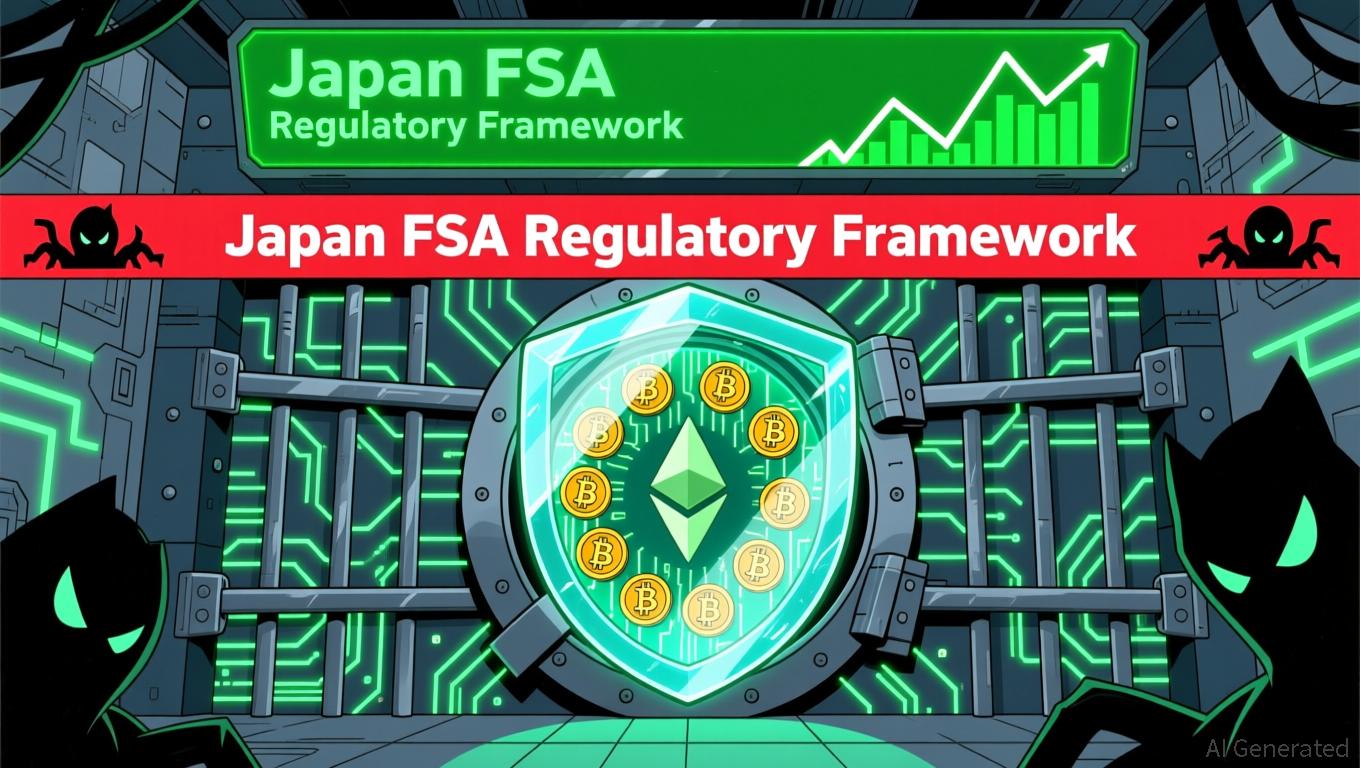Japan Plans to Protect Crypto Investors Using Insurance Reserves Similar to Banks
- Japan's FSA will require crypto exchanges to hold liability reserves proportional to trading volumes, shielding users from losses via dedicated funds or approved insurance . - The reform addresses gaps in current oversight, mirroring securities firms' capital requirements and aiming to restore trust after major breaches like Mt. Gox and DMM Bitcoin . - Cryptocurrencies will be reclassified under financial instruments law, imposing stricter audits, insider-trading bans, and enabling crypto ETFs as part of
Japan’s Financial Services Agency (FSA) plans to require cryptocurrency exchanges to set aside liability reserves, protecting users from losses due to hacks, fraud, or operational errors. This initiative, designed to strengthen investor trust after several major security incidents, is expected to be presented to parliament in 2026. Under the new rules, licensed exchanges must maintain reserves based on their trading volumes and past incidents, with
The proposed framework addresses a significant oversight in Japan’s current regulations. Although exchanges now store customer assets in cold wallets, there is no legal requirement for them to hold compensation reserves in the event of losses
This push for tighter protections comes after years of instability in Japan’s crypto industry. The 2014 Mt. Gox collapse, which resulted in the loss of 850,000 BTC, and the 2024 DMM

The FSA’s plans also cover stablecoins, with regulators
Some critics warn that these measures could limit competition, as smaller exchanges may struggle with higher compliance costs. However, supporters argue that a more stable market will benefit everyone in the long run. “The aim is to rebuild trust after years of instability,” said
Disclaimer: The content of this article solely reflects the author's opinion and does not represent the platform in any capacity. This article is not intended to serve as a reference for making investment decisions.
You may also like
Zcash News Update: Reliance Chooses Zcash for Its Advanced Institutional Privacy
- Reliance Global Group shifted its Digital Asset Treasury entirely to Zcash (ZEC), citing its privacy features and institutional-grade confidentiality as strategic advantages over Bitcoin . - The move aligns with broader market trends, as Evelyn Partners boosted Nasdaq holdings by 2,663% while Franklin Resources reduced its stake amid volatile institutional strategies. - Zcash's zero-knowledge proofs and selective disclosure capabilities were highlighted by Reliance's advisory board as critical for enterp

XRP News Update: With Korea Cracking Down on Exchanges, Institutional Interest in Crypto Surges
- South Korea's Financial Intelligence Unit imposes fines on Bithumb and major crypto exchanges for AML/KYC violations, following a $26M penalty on Upbit operator Dunamu. - XRP Tundra accelerates its 2025 launch via institutional buyout, securing ecosystem funding and multi-exchange onboarding while maintaining $0.01 retail token pricing. - Three XRP spot ETFs, including Grayscale's November 24 debut, gain traction in traditional finance, with Bitwise's ETF attracting $107.6M in initial inflows. - Regulato

Astar 2.0: Will It Revolutionize DeFi in 2025?
- Astar 2.0 introduces ZK Rollups, LayerZero interoperability, and hybrid AMM-CEX models to address DeFi scalability and liquidity challenges. - The platform achieved $1.399B TVL and $27.7B daily trading volumes by Q3 2025, driven by institutional adoption and AI-powered security frameworks. - Tokenomics 3.0 with fixed supply and Burndrop PoC enhances governance transparency, while cross-chain solutions reduce fragmentation in DeFi ecosystems. - Despite competition from Ethereum L2s and regulatory risks, A

Aster DEX's Rapid User Growth: Reflecting DEX Adoption Trends in 2025
- DEXs captured 20% of global crypto trading volume in Q3 2025, doubling from 2024 as self-custody demand grows. - Aster DEX's ASTER token upgrade enabled 80% margin trading, driving 800% volume surge after CZ's $2M token purchase. - Upcoming Aster Chain (Q1 2026) will use zero-knowledge proofs to address DeFi's scalability and privacy challenges. - DEX derivatives volume hit $1T/month in Q3 2025, with Aster's fee discounts positioning it to capture market share. - Aster DEX exemplifies DEX evolution throu